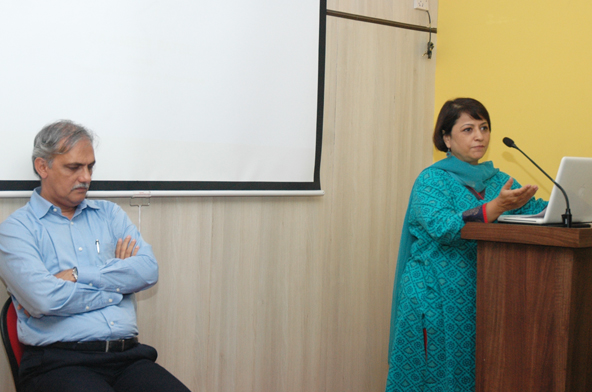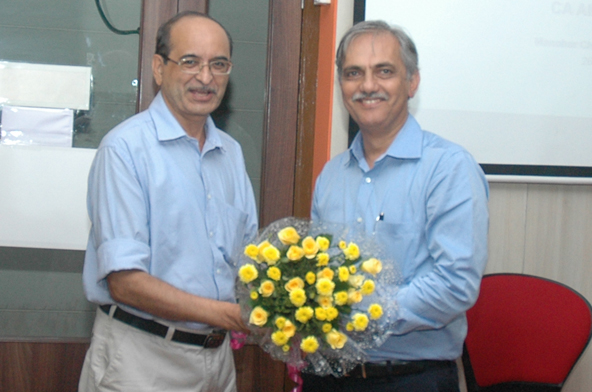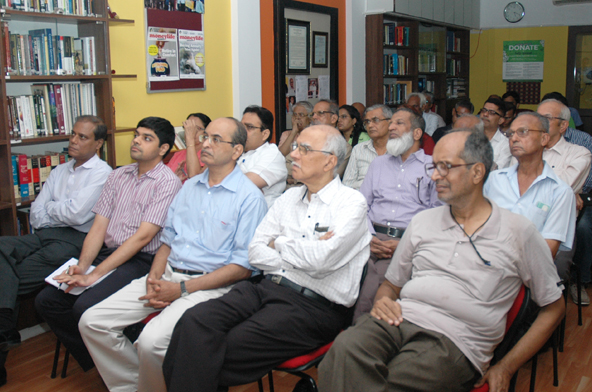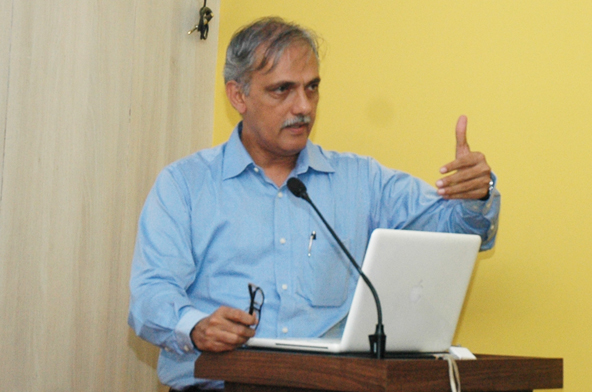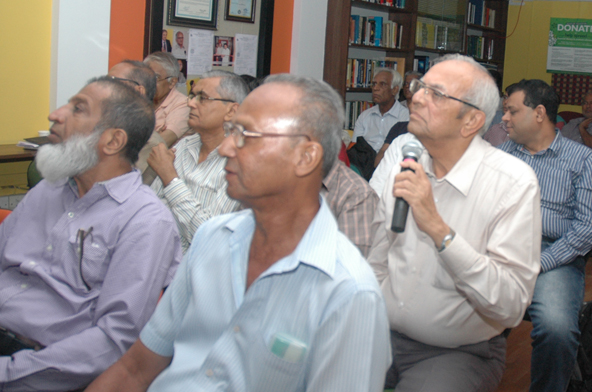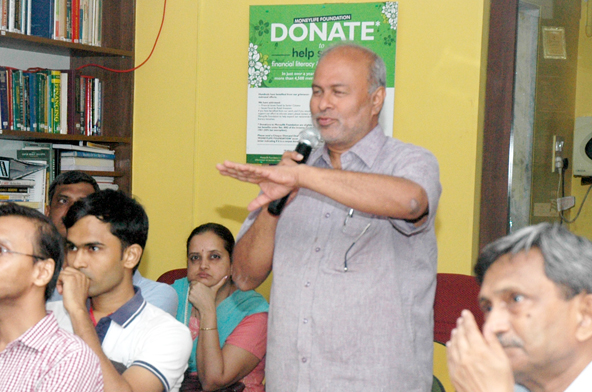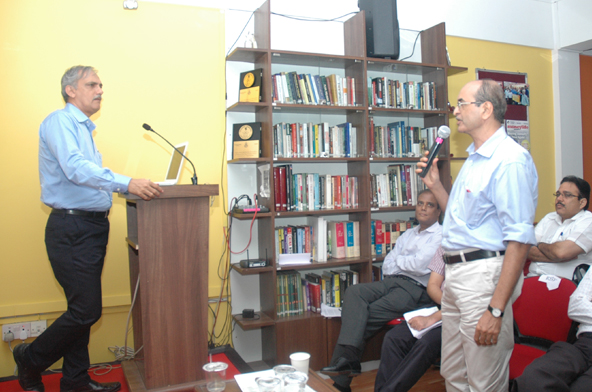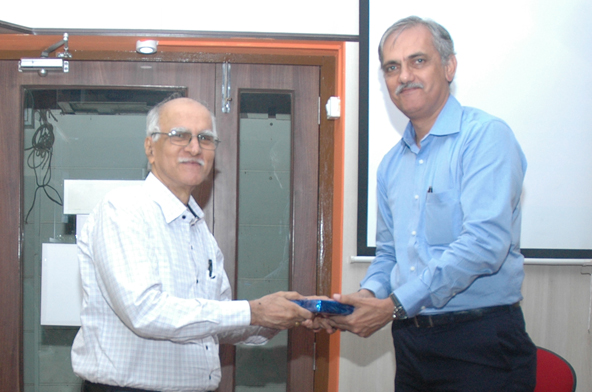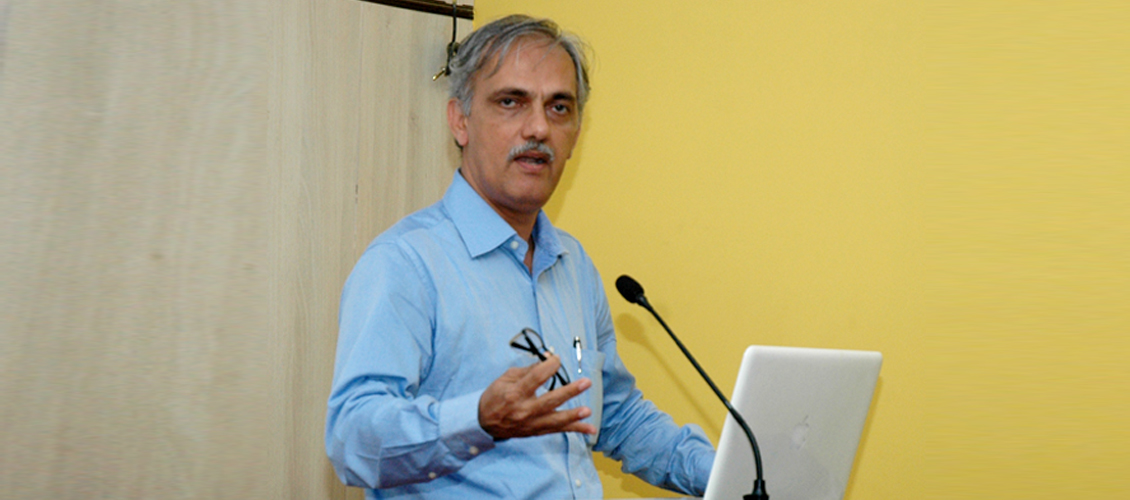
Many taxpayers consider provisions relating to TDS (Tax Deducted at Source) to be complicated. Ameet Patel, a chartered accountant by profession and a partner at Manohar Chowdhry & Associates, demystified TDS provisions for a packed audience today. The session, “TDS and how they affect you as a taxpayer” was conducted by Moneylife Foundation at the Moneylife Foundation Knowledge Centre, Dadar, with the support of Capital First. He started the session remarking, “The literacy levels for taxation among people are quite low,” making sessions like these are important.
Ameet Patel, a rankholder an accomplished Chartered Accountant and ex-president of the Bombay Chartered Accountants’ Society (BCAS) gave an introduction to TDS and highlighted its advantages. He then moved on to TDS provisions for different payments like salaries, interest on securities interest on banking/other companies, rent and professional fees. Given the fact that it has become complicated for the tax deductor, he simplified these provisions. In many cases, TDS does not need to be deducted. For instance, TDS is not collected on payments made to Reserve Bank of India (RBI) and the Government of India. Ameet Patel highlighted many other scenarios like these.
The rates at which TDS is deducted is different for different nature of payments. Moreover, these rates are different for different categories of assesses. Mr Patel simplified these provisions, appropriately classifying these into different heads. He said, “For salaries, there is no specified rate for deduction of TDS as opposed to other forms of payment.” Some people have the misconception that surcharge and education cess is to be added while deducting TDS. Ameet Patel clarified that these need not be added. Highlighting the due dates for payment of TDS, he said that payment for the month of March can be made upto April 30 as opposed to the 7th of the next month for all other months.
In a few cases, deductors fail to comply with TDS provisions, which give rise to consequences like penalties and interest. Ameet Patel highlighted these consequences, emphasising the importance of complying with these provisions. He highlighted the importance of Form 26AS saying that it is like the Bible for taxpayers for TDS provisions. Delineating different aspects of Form 26AS, he said that a simple error like quoting of incorrect PAN (or not quoting PAN) in TDS return is the most common reason why proper credit is not reflected in TDS return. He told the audience to ensure that the information in Form 26AS is the same as that in the TDS certificate to make sure that proper TDS credit is appearing in Government records before filing the return of income. He also pointed out that getting TDS certificate is not that important as long as the TDS is reflected in 26AS.
Form 15G and 15H are other critical important forms for savers by which they tell the banks not to deduct TDS, if they so qualify. He highlighted the complexities of these forms, going on to explain the misconceptions many have relating to these forms and their own tax status.
He finally advised the audience to comply with tax laws, given the fact that records are maintained digitally by government agencies and everything can be tracked by them. Many people are unduly harsh on the tax deductors. He advised them to empathise with them sating “Put yourself in the tax deductors shoes.” Tax deductors are compelled to take a conservative position when the law is not very clear as there are harsh consequences (interest, penalty and prosecution) if they do not comply with the provisions.
The session ended with an interactive Q & A session covering TDS provisions for a number of issues like co-operative societies, bank fixed deposits and gifts with Mr Patel re-iterating the vital importance of 26AS. This was the second in a series of tax programmes sponsored by Capital First.


